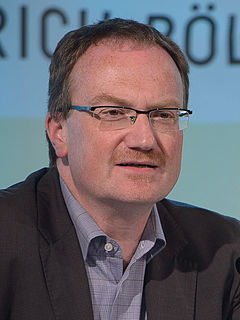A Quote by Magnus Larsson
The only thing we lack for even faster growth is more capital.
Related Quotes
Criticism of growth arose with the discovery that growth beyond a certain point is destructive of the earth. We are already using resources much faster than they can be replenished. We are producing wastes much faster than nature's sinks can process them. The growth economy will end. The only questions are when its end will come, and whether humanity will be able to survive its demise.
Watch the walls come down, whether it's in the South or on Wall Street. When the walls come down, what do we find? More markets, more talent, more capital and growth. Which means that the race and sex discrimination stunt economic growth. It's not good for capitalism. It's not good for America's growth. And it's not morally right.
There is but one means available to improve the material conditions of mankind: to accelerate the growth of capital accumulated as against the growth in population. The greater the amount of capital invested per head of the worker, the more and better goods can be produced and consumed. This is what capitalism, the much abused profit system, has brought about and brings about daily anew. Yet, most present-day governments and political parties are eager to destroy this system.
One of the great drivers of the alienation that has made Donald Trump possible is that the growth in the American economy has been weak. In the decade from 2005 to 2015, there was not one year when the US hit three per cent growth. And to the extent there's been growth, virtually all of it has been collected by the top 10 per cent of the population. Obviously, if we knew how to make growth faster, we would. We don't. And it's very difficult to make growth more broadly shared. Because it's not just the US that has this problem.
The bigger you grow, the more intimate communication has to be. It almost has to be belly and belly. As you get bigger and bigger in an organization, everything gets more and more detached and everything is on email or voicemail. That's the worse thing because lack of intimacy is one of the downsides (of growth).





































